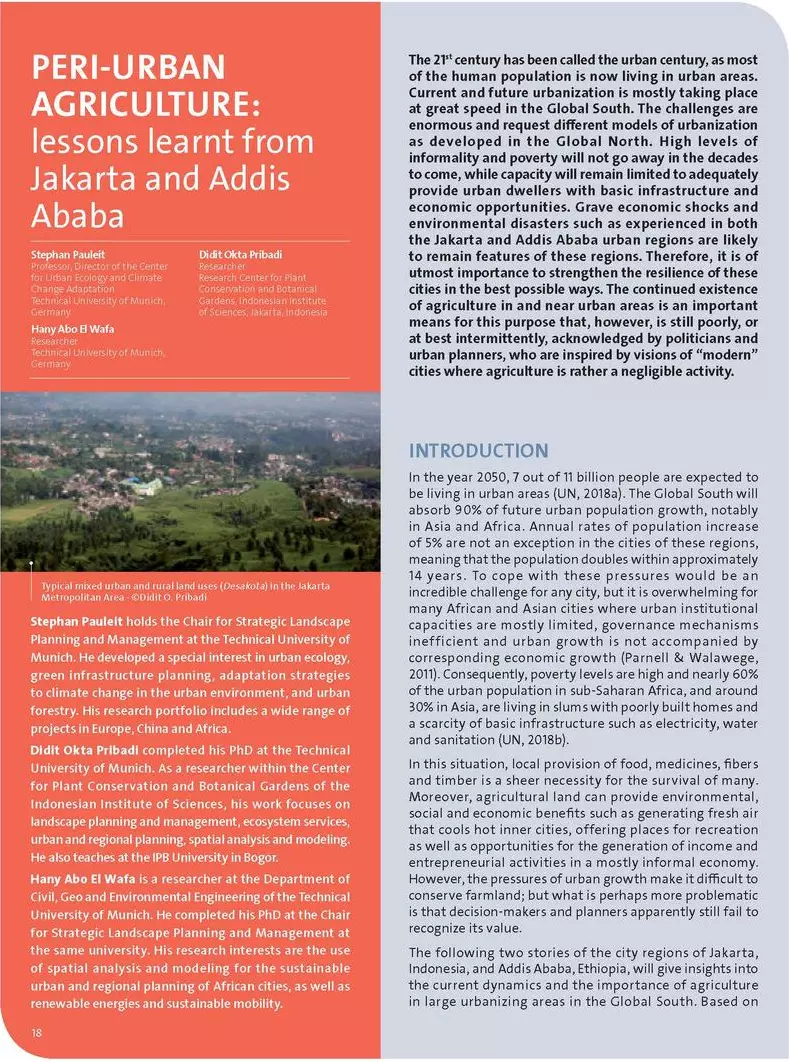Stephan Pauleit, Technical University of Munich
Hany Abo El Wafa, Technical University of Munich
Didit Okta Pribadi, Indonesian Institute of Sciences, Jakarta
The 21st century has been called the urban century, as most of the human population is now living in urban areas. Current and future urbanization is mostly taking place at great speed in the Global South. The challenges are enormous and request different models of urbanization as developed in the Global North. High levels of informality and poverty will not go away in the decades to come, while capacity will remain limited to adequately provide urban dwellers with basic infrastructure and economic opportunities.
Grave economic shocks and environmental disasters such as experienced in both the Jakarta and Addis Ababa urban regions are likely to remain features of these regions. Therefore, it is of utmost importance to strengthen the resilience of these cities in the best possible ways. The continued existence of agriculture in and near urban areas is an important means for this purpose that, however, is still poorly, or at best intermittently, acknowledged by politicians and urban planners, who are inspired by visions of “modern” cities where agriculture is rather a negligible activity.



